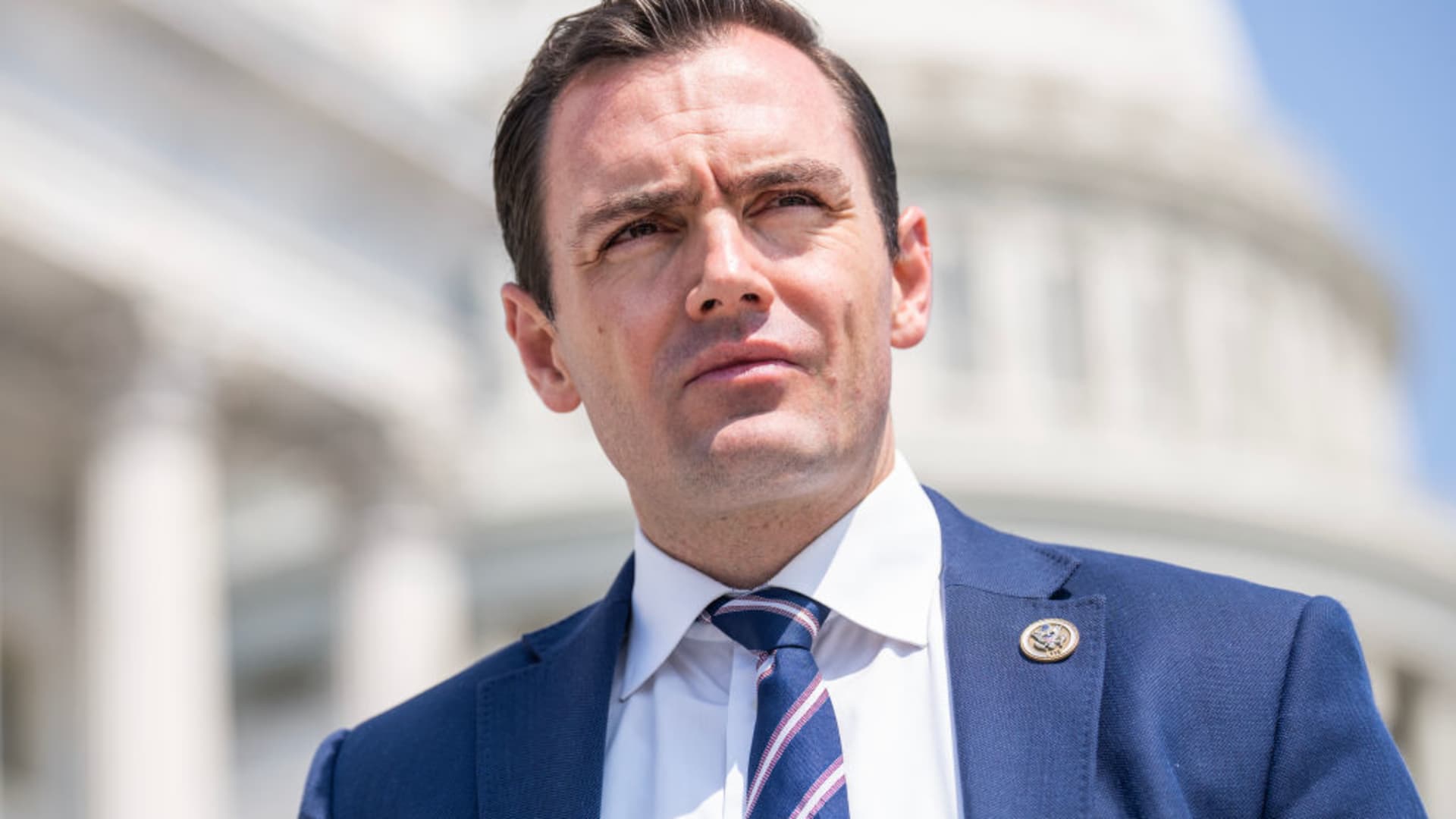
WASHINGTON — A leading House Republican voice on the national security threat posed by China said the White House’s plan to restrict outbound investment in the Chinese military and defense companies falls short of addressing the real problem.
President Joe Biden’s executive order, which is expected to be implemented next year, “takes an important step in the right direction,” but it should have accounted for public market investments into Chinese firms collaborating with the Chinese military or complicit in human rights abuses, Rep. Mike Gallagher, said on CNBC’s “Squawk Box” on Friday.
The executive order will also require outbound U.S. investors to notify the Treasury Department about transactions involving certain technologies that could pose a threat to the United States.
The Wisconsin Republican is the chairman of the House Select Committee on the Chinese Communist Party and a leading voice in the House on the risks of U.S. investment in China.
Americans who invest in company stocks, mutual funds, ETFs and bonds on the public market risk inadvertently contributing to technology that poses a potential national security threat if they rely on U.S. financial firms that invest in companies blacklisted for supporting the CCP.
The House CCP Committee has flagged around 50 firms, including machinery, aircraft and technology firms and created a de facto blacklist.
Gallagher argued that investment restrictions can be used both defensively for national security, and as a weapon to weaken China’s economic stature and its military capabilities by cutting off funds.
“The CCP is an adversary and you don’t defeat an adversary or deter an adversary by shoveling billions of dollars into their military and technology program,” he said.
He also contended that investments like American retirement plans should not be dependent for returns on companies that could pose a threat to the long-term security of the plans’ investors.
“We have to ask ourselves if we want the pension fund, the overall retirement health of millions of Americans, to be dependent on the success of investing in things like [Chinese] aircraft carriers, artillery shells, and fighter jets.”
China is currently the third largest U.S. trading partner behind Mexico and Canada, a reality that puts the White House in a tricky position of trying to restrict specific U.S. investments while keeping the overall bilateral trade relationship stable.
Gallagher’s statements come as the Chinese government announced on Thursday that it is considering countermeasures to Biden’s order.
Last month, the House CCP Committee sent inquiries to U.S.-based global investment firms MSCI and BlackRock seeking more information about how the firms might direct U.S. investments into Chinese companies on a committee blacklist.
“We don’t think Blackrock or MSCI should funnel American dollars into certain companies like this, and we need to close the loopholes and at a minimum, ensure Americans are not knowingly or unknowingly funding the Chinese Communist Party,” Gallagher said Friday.
MSCI provides investment data and analytics to help clients make investment decisions in different global markets. In a statement to CNBC, the company said it is that it “engaging constructively with the House Select Committee” and “complies with all applicable U.S. laws.”
BlackRock is the world’s largest asset manager and has previously said it offers its clients options to avoid investing in certain Chinese sectors. The company told CNBC Friday that it complies with applicable laws and “the majority of our clients’ investments in China are through index funds.”
The executive order grants Treasury Secretary Janet Yellen broad authority to determine what is a covered investment — too much authority, according to Gallagher.
The brewing debate over how widely to apply restrictions is pitting the White House against China skeptics on Capitol Hill, both Republicans and a significant cohort of Democrats.
Yellen has already signaled that she intends to keep any investment restrictions “narrowly targeted” to protect U.S. national security, and insists they are not intended to weaken China’s economy.
“Even though these policies may have economic impacts, they are driven by straightforward national security considerations,” she said in an April speech.
Treasury is accepting public comment on the proposed rules in the executive order through Sept. 28. So far, however, no formal timeline has been released for the issuance of final rules on outbound investment restrictions.
